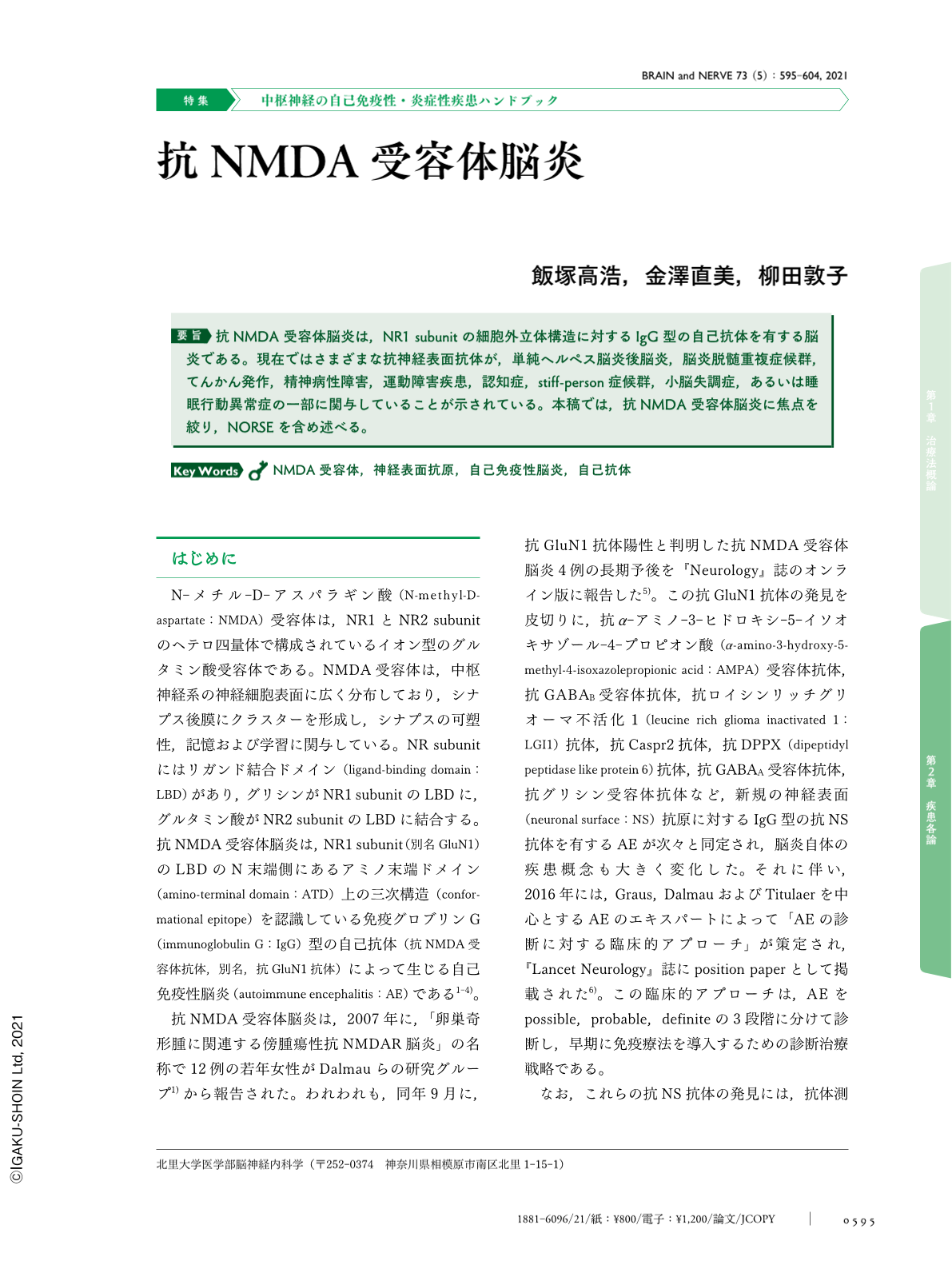Japanese
English
- 有料閲覧
- Abstract 文献概要
- 1ページ目 Look Inside
- 参考文献 Reference
抗NMDA受容体脳炎は,NR1 subunitの細胞外立体構造に対するIgG型の自己抗体を有する脳炎である。現在ではさまざまな抗神経表面抗体が,単純ヘルペス脳炎後脳炎,脳炎脱髄重複症候群,てんかん発作,精神病性障害,運動障害疾患,認知症,stiff-person症候群,小脳失調症,あるいは睡眠行動異常症の一部に関与していることが示されている。本稿では,抗NMDA受容体脳炎に焦点を絞り,NORSEを含め述べる。
Abstract
Anti-NMDA receptor (NMDAR) encephalitis is an autoimmune disease caused by autoantibodies against the extracellular conformational epitope of the NR1 subunit of the NMDAR (GluN1 antibodies). A series of autoantibodies directed against neuronal surface (NS) or synaptic proteins play an important role in the pathophysiological mechanisms of post-herpes simplex encephalitis (post-HSE), overlapping autoimmune encephalitis and demyelinating syndrome, epileptic seizures, psychosis, involuntary movements (orofacial and limb dyskinesias, catatonia, dystonia, chorea, myoclonus, psychogenic nonepileptic seizures, and faciobrachial dystonic seizures), postpartum psychosis, stiff-person spectrum disorder (including progressive encephalomyelitis with rigidity and myoclonus [PERM]), cerebellar ataxia, and sleep behavior disorders. These NS antibodies are identified with cell-based assays and immunohistochemistry using nonperfused paraformaldehyde-fixed rodent brain tissue. This paper presents an update on anti-NMDAR encephalitis, including the differential diagnosis of cryptogenic new-onset refractory status epilepticus (NORSE), and on the treatment strategy, including third-line therapy.

Copyright © 2021, Igaku-Shoin Ltd. All rights reserved.


